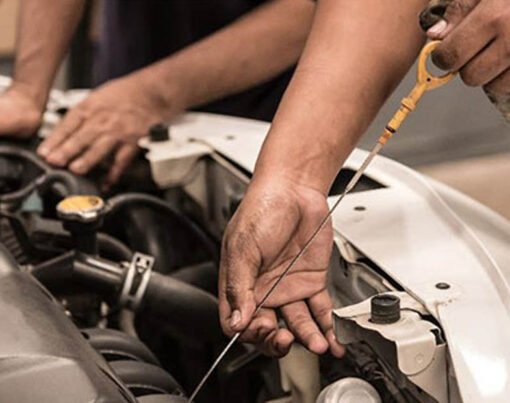Are you shuddering when you accelerate? Do you hear strange noises from your car regularly?
If the answer is yes, there is a big possibility that you have a mechanical problem with your car – well, at least, that’s what it seems like. But then again, that might not be the case. It might be something else altogether.
To help you further, we put together a list of 8 common signs that your vehicle might have a mechanical problem. Read on to learn more.
Table of Contents
1. Strange Noises
If your car starts making strange noises it’s a sign that something might be wrong with its mechanical parts. These could be in the form of squeaks, squeals, clunks, or rattles.
Listen carefully when you drive or start the engine. Unusual sounds could indicate issues with the engine, brakes, suspension, or other vital components. This is especially true if they get louder or more frequent.
Don’t ignore these noises. They’re your car’s way of telling you it needs attention. Get it checked by a mechanic to prevent more common car problems down the road and keep your vehicle running smoothly.
2. Warning Lights On
When you see warning lights flashing on your car’s dashboard, it’s like your vehicle’s way of waving a red flag. These lights, like the check engine light, ABS light, or oil pressure light, are visual cues that something isn’t quite right under the hood.
Don’t panic, but don’t ignore them either. Each light signifies a specific issue, from engine trouble to brake concerns. Ignoring warning lights can lead to costly repairs or even breakdowns.
Play it safe and consult your owner’s manual or a mechanic. Doing so will help you know what the warning light means and address the issue promptly.
3. Poor Fuel Efficiency
If you’ve noticed your car using more gas than usual, it might mean something’s not quite right under the hood. When your vehicle isn’t running efficiently, it can cost you more at the gas station and signal underlying issues.
This can be due to things like a dirty air filter, worn-out spark plugs, or a malfunctioning oxygen sensor. Keeping an eye on your fuel economy is a smart move.
If you see a significant drop in miles per gallon, it’s a good idea to have your car checked by a mechanic. They can figure out and fix the problem.
4. Difficulty Starting
If your car won’t start, it can be a clear sign of a mechanical issue. You turn the key, and the engine struggles or doesn’t start at all. This frustrating situation might happen due to a weak battery, a faulty starter motor, or problems with the fuel system.
Don’t ignore it – address the issue promptly. Difficulty starting your vehicle can leave you stranded and lead to more costly repairs if left unchecked. It’s best to have a professional mechanic take a look to identify and fix the root cause of this problem, ensuring your car starts reliably.
5. Vibrations While Driving
If you notice strange vibrations while behind the wheel, it’s a sign that something may be amiss. You might feel these vibrations through the steering wheel or your seat. They can be due to several different issues.
It could be because of problems with your tires, wheel alignment, or suspension. In worse cases, it can be due to critical issues with the engine or transmission.
These vibrations not only impact your driving comfort. They could also point to potential safety risks. To ensure a smoother and safer ride, it’s wise to have a professional mechanic inspect and address the source of these vibrations.
6. Sudden Loss of Power
When your car experiences a sudden loss of power, it’s like hitting a roadblock while driving. You step on the gas, but the response is weak, and your vehicle struggles to speed up.
This issue can occur due to various reasons. It could be due to a clogged fuel filter, a malfunctioning sensor, or problems with the engine or transmission.
It’s a frustrating and potentially dangerous situation. To ensure your safety and prevent further damage, consult a mechanic promptly when you encounter a sudden loss of power in your vehicle. And if you decide to get a new car instead, you can always view www.cardinalevw.com and similar websites.
7. Overheating
If your car starts to overheat, it’s a clear sign that something’s not right with its mechanical system. Overheating occurs when the engine gets too hot, and you might notice the temperature gauge climbing into the red zone.
This issue can result from problems like a malfunctioning thermostat, low coolant levels, or a faulty radiator fan. When your car overheats, it can lead to engine damage and breakdowns, leaving you stranded.
To prevent this, pull over, turn off the engine, and let it cool down. Seek help from a mechanic to identify and fix the underlying issue. Do this before it leads to more significant problems.
8. Smells and Odors
Strange or unpleasant smells inside or around your car can be signs of mechanical problems. If you notice a strong, unusual odor, it’s essential to investigate.
A sweet smell might be a sign of a coolant leak, while a burning odor could mean an issue with the brakes or electrical system. Musty or moldy smells could point to a problem with the air conditioning system. Foul odors might indicate issues with the exhaust or emissions system.
Ignoring these smells may lead to more significant problems or safety concerns. So have your car checked if you smell anything that’s not normal.
Watch Out for These Signs of a Vehicle Mechanical Problem
Being aware of these common signs is crucial in maintaining the safety and functionality of your car. Be sure to take your vehicle to a trusted mechanic if you encounter any of these issues. You wouldn’t want your vehicle’s mechanical problem to get worse.
Remember, regular vehicle maintenance can save you time and money in the long run. Don’t hesitate to schedule a check-up for your car today!
Are you looking for other helpful content? If so, then stay with us here on this page and continue reading for more.










